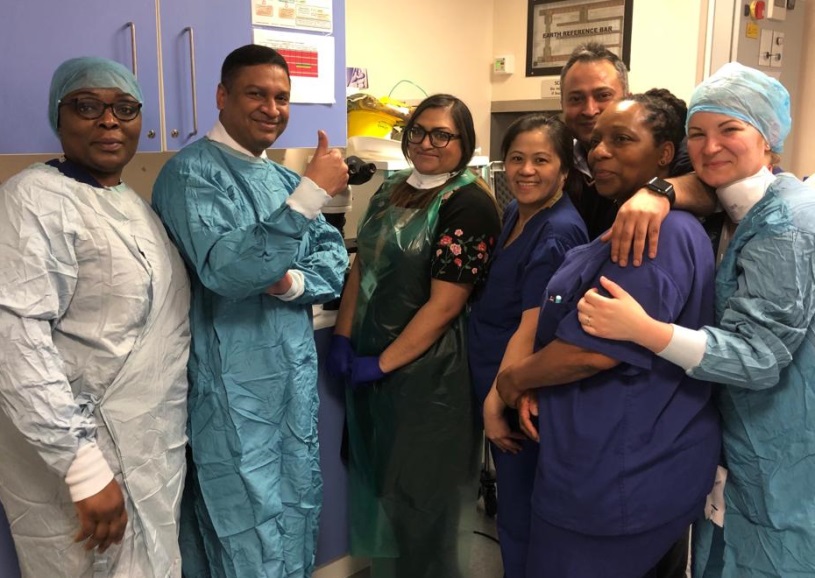Over the last six months, SWLP has introduced two new fine needle aspiration (FNA) services at Croydon Hospital. Fine needle aspiration is a non-invasive technique where a thin needle is inserted into a mass to collect a sample. The procedure is carried out by the clinical team and the sample is then passed to a biomedical scientist for rapid onsite evaluation (ROSE), who will stain and look at the sample on the spot to confirm that they have enough of the right kind of material. If more is needed, the ROSE BMS can guide the clinician to procure additional samples for additional tests.
The first service set up was the endobronchial ultrasound (EBUS) FNA of the lung with EBUS ROSE, which went live in May. This service uses FNA to retrieve lymph node samples from the patient’s lungs and looks for conditions such as cancer, sarcoidosis and lymphoma. It can also assess staging of lung cancer. The procedure takes place in a clinic setting, and the patient is able to walk out after an hour’s recovery.
The second service is the head and neck service. In this case, the procedure is carried out in a clinic setting and the patient can walk away within 20 minutes. Clinicians use this service to assess the pathology of thyroids, lymph nodes and parotid lesions. This service went live a month ago and so far has been a great success.
Using FNA testing reduces the inadequate rates significantly, as the biomedical scientist is able to confirm immediately that what has been retrieved includes enough of the right kind of material, which means patients don’t have to come back to have more samples taken. Using this procedure also ensures that precious samples aren’t wasted; for example creating six slides with diagnostic material when two is sufficient. Additional material can then be used in other ways, such is being sent for molecular testing for targeted treatment.
Project managers from SWLP oversaw the introduction of both services, coordinating clinical teams, finances, resources, validation and testing. There is a rota of staff from Cellular Pathology who attend the EBUS clinic and are able to carry out the assessment and currently there are two who attend the bi-weekly head and neck clinic, with more to be trained. The introduction of these services is beneficial both to clinical teams and patients and is an excellent example of how SWLP works with clinical teams and hospitals to improve efficiency and patient pathways.

